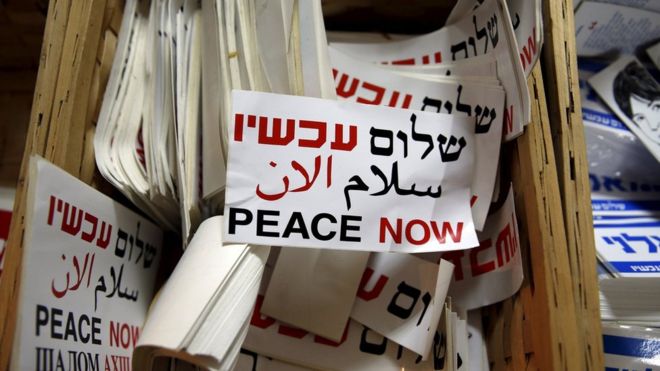EU criticises Israel law forcing NGOs to reveal foreign funding

The EU has criticised a controversial new Israeli law targeting non-governmental organisations that receive most of their funding from abroad.
Such groups must now declare they rely on foreign money in communications with officials, in the media and online.
Israel's prime minister said the public needed to know when foreign states were "meddling" in its internal affairs.
But the EU said the requirements, which mostly affect human rights groups, went "beyond the need for transparency".
Groups that largely rely on private donations from wealthy individuals, which tend to be the case for right-wing organisations, are exempt.
'Undermining values'
The so-called "NGO Law", approved by the Israeli parliament on Monday night, requires groups to declare that they receive more than 50% of their funding from foreign state entities — including the EU — to declare as such in their reports to the registrar of non-profit associations and in all their official publications.
Representatives must also tell the heads of parliamentary committees when registering to attend meetings.
Failure to comply with the rules will result in a fine.
Analysis by the Israeli justice ministry found there were 27 NGOs in Israel that would be affected by the law, of which 25 were human rights groups identified with the Left, Israeli media reported.
They include B'Tselem, which monitors human rights violations in the Occupied Territories, and Zochrot, which advocates for the return of Palestinian refugees and their descendants.
Prime Minister Benjamin Netanyahu wrote on his Facebook page that the law aimed "to prevent an absurd situation, in which foreign states meddle in Israel's internal affairs by funding NGOs, without the Israeli public being aware of it."
"Unlike the Left's claims, the law's approval will increase transparency, contribute to creating a discourse that reflects Israeli public opinion, and will strengthen democracy," he added.
But the EU's External Action Service said the reporting requirements seemed "aimed at constraining the activities" of civil society organisations.
"Israel enjoys a vibrant democracy, freedom of speech and a diverse civil society which are an integral part of the values which Israel and the EU both hold dear. This new legislation risks undermining these values," a spokesperson warned.
The director of Human Rights Watch in Israel and the Palestinian territories, Sari Bashi, said: "If the Israeli government was truly concerned about transparency, it would require all NGOs to actively alert the public to their sources of funding — not just those that criticise the government's policies."
The settlement watchdog Peace Now, another affected group, said it would challenge the law at the Supreme Court.
Политика конфиденциальности | Правила пользования сайтом








